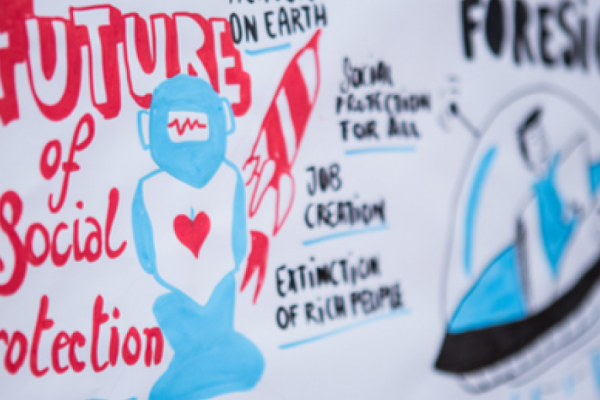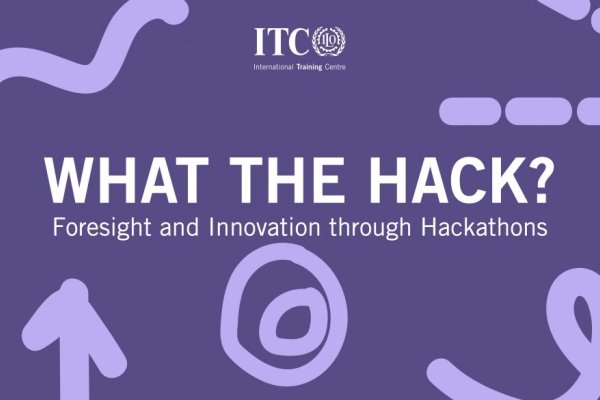Inovação
projetos
Inovação
Criamos soluções inovadoras
Photo © Unsplash/Federico Beccari
We use cutting-edge products, services, and processes to accelerate innovation at the organizational level.
What we do
Now more than ever, organizations are embracing innovation initiatives. One of the key drivers of this shift is a growing awareness that traditional processes and tools are not powerful enough to address current environmental, social, and economic challenges. More and more we are confronted with wicked problems, which require new and different solutions. By addressing these innovation challenges, we can generate greater and more sustainable impact. In the words of UN Secretary-General António Guterres: “We need to do things differently and we need to do different things.”
We help our constituents move beyond conventional problem-solving approaches and toward innovation. In the context of the ITCILO, innovation includes both the “what” (products and policies) and the “how” (processes and methods).
How it works
The Learning Innovation team uses three cutting-edge approaches to facilitate internal innovation processes with global partners.
- Design thinking
- Systems thinking
- Futures thinking
Design thinking
Design thinking is a human-centered way to solve problems. It includes the use of iterative, lean, and agile testing through co-creation, with an emphasis on empathy. Since its inception, design thinking has been mainstreamed into the private as well as the public sectors.
Toolkits, such as those developed by IDEO or the ITCILO, aim to position the end-users of a hypothetical product at the heart of the creation process. It includes activities like challenge definition, stakeholder mapping, and user personas.
At the end of a design thinking workshop, participants gain access to important insights around the lived experiences of stakeholders. This information, combined with quantitative data, ensure a better final product.
Systems thinking
A systemic approach allows stakeholders to see complexity more clearly. It highlights the ways in which various components of a scenario are connected and how they interact with each other.
By deepening their understanding of the complexity of a given system, project managers can more clearly predict the potential impacts, both positive and negative, of a proposed design intervention.
To promote systems thinking, the ITCILO taps into a wide array of tools. For example, we pull from our Coping with Complexity training course, as well as social network analysis tools like systems mapping.
Futures thinking
Today, futures thinking methodologies such as foresight and futures literacy are used to improve policy development processes. Put simply, futures thinking is all about envisioning different possible futures and preparing for them ahead of time.
Relevant tools cover the intersection of social, economic, political, cultural, and technological dimensions of complex challenges.
The ITCILO helps participants tap into 15 different methodologies that have been tested in workshops around the world. Activities include framing, awareness of change, impacts of change, alternative futures, preferred futures, and strategy and change management.
Partnerships with the United Nations
The Centre is embedded in the expert pool of the UN Innovation Network and makes active use of the UN Innovation Toolkit, which was requested by the UN Secretary-General and developed under the leadership of the UN System Chief Executive Board for Coordination (CEB).
Innovation, inclusion, and digital transformation
In the aftermath of the COVID-19 pandemic, the ILO innovation approach is currently under review with focus shifting towards digital innovation. The Common Agenda released by the UN Secretary General in 2021 identified digital cooperation as a key results area and the adjoined Roadmap for Digital Cooperation lists digital capacity development, digital human rights, artificial intelligence, and digital inclusion as priority topics that call for contributions from the ILO.
Contact us
Drop us a line at learninginnovation@itcilo.org with any questions you may have
Learn more
Learn more



